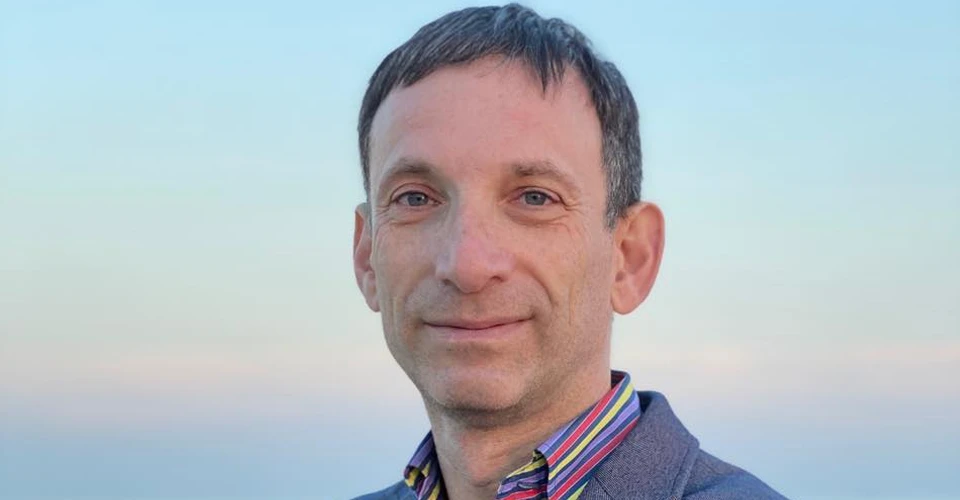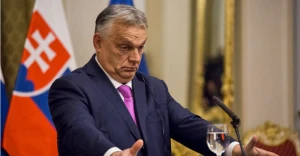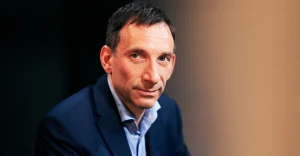
Medvedev sees talks as possible only with collaborator-led Ukraine. Vitaliy Portnykov's column
The Russian leadership still thinks it can make its intentions to seize Ukraine legal if collaborators come to power in our country
In a recent propaganda forum, Deputy Chairman of Russia's Security Council and former President Dmitry Medvedev delivered a speech against the backdrop of a map depicting a destroyed and divided Ukraine. Regardless of the typical content found in Medvedev's speeches and social media posts, this address serves as a compelling indicator. It should persuade those contemplating a potential ceasefire in the conflict between Russia and Ukraine that the Russian political leadership, under the guidance of Vladimir Putin, is not considering an end to the war. Instead, their objective is the destruction of the neighboring state and the annexation of a significant portion of its territory to Russia.
As we can see, Moscow is even willing to share Ukrainian lands with its neighbors, thus confirming the intentions of Vladimir Putin, who in 2022 thought that territorial gifts to Central European countries would force them to abandon their support for Ukraine in its confrontation with Russia.
In the two years of the large-scale war between Russia and Ukraine, the position of Vladimir Putin and his closest associates has not changed: they are saying quite clearly, without any diplomatic flourishes, that Ukraine is Russia, and that the territory of the neighboring country should be absorbed by the Russian Federation in the course of an aggressive war that no one in the Kremlin is going to stop in the near future. And this is exactly the message that Dmitry Medvedev wants to send to his countrymen and the West, against the backdrop of Vladimir Putin's so-called presidential election, which is supposed to legitimize the Russian dictator's rule until 2030 and possibly beyond.
The Russian president is obviously going to hold power in the country until his physical death. During this time, he would like to eliminate the statehood of both Ukraine and other former Soviet republics, so that his legacy will be the restoration of the Russian state within the Soviet Union borders in 1991. This is Putin's main political goal, and it must be clearly understood that this goal is shared by the vast majority of Russian citizens who are convinced, as their president is, that the Soviet Union was Russia, and that there is no price that Russians cannot pay to realize this aggressive plan. Even if it means a long-term war, enormous economic losses, and tens, if not hundreds of thousands of dead Russian citizens for this aggressive restoration of the Soviet Union. After all, the price of human life, whether in modern Russia, the Soviet Union, or the Russian Empire, has never been worth anything when it comes to territory.
When we analyze Dmitry Medvedev's statement, we should understand that the former president of the Russian Federation speaks at such events not on his own behalf, but on behalf of Vladimir Putin and the entire Russian political leadership, convinced that they can prove to their own society the necessity of such an aggressive, long-term war.
However, I would also like to point out that Medvedev speaks of the possibility of negotiations only when it comes not to the current leadership of our country, but to the leadership that will follow. In other words, the idea that sooner or later, under the influence of Russia's long-running war against Ukraine, Moscow will succeed either in occupying the Ukrainian capital or in completely destabilizing the situation in Ukraine by bringing collaborators to power in Kyiv remains and does not change. This is the plan that Vladimir Putin wanted to implement back on February 24, 2022, when he hoped that his troops, tasked with the occupation of Kyiv, would be able to return fugitive President Viktor Yanukovych to the Ukrainian capital. The same Yanukovych whom Putin continues to consider the legitimate head of the Ukrainian state.
Thus, the danger of Russia's vision of the future lies in the fact that there is no desire for peace, that Moscow is confident that war is the best political condition that guarantees the duration of Vladimir Putin's power, the consolidation and strengthening of the Chekist vertical, and the constant strengthening of the regime in the Russian state itself.
Over the years, Vladimir Putin's authoritarian Russia has turned into a Nazi-style totalitarian state and continues to move down the path of totalitarianism at such a speed that even those Russian citizens who are loyalists to the current brutal regime cannot keep up.
At the same time, the Russian leadership continues to think that it can legitimize its intentions, i.e., get approval from the leadership of the very Ukraine that, in the eyes of Putin, Medvedev and others, does not exist and has never existed. But it is clear that this kind of approval, this kind of consent, can only be obtained from collaborators, only from those who agree to betray the interests of their own country in exchange for becoming the puppet leadership of one of the Russian regions, where the word "Ukraine" cannot even be mentioned without being sentenced to a ten-year prison term.
Therefore, Moscow still cannot understand which option is better for it: simply occupying Ukraine with the annexation of its regions, region by region, until it becomes obvious that Russia has established control over the neighboring state, or attempts at internal destabilization with the involvement of collaborators from pro-Russian political forces who are now in Moscow just waiting for this time. And it is clear that when there is no obvious unity in Ukraine itself between the authorities and the patriotic forces, those forces that were hardened during the two uprisings for independence, the two Maidans in Kyiv, this only facilitates the intentions of the Russian political leadership led by Vladimir Putin. This only allows former President Dmitry Medvedev to smile bloodthirstily next to the map of Ukraine dismembered and destroyed by enemies, and those who think about the preservation of the Ukrainian state must understand that its future salvation is, first of all, the unity of patriotic forces and the readiness to create such tools that would put an end to the ambitions of Vladimir Putin and his compatriots.
About the author. Vitaliy Portnykov, journalist, winner of the Shevchenko National Prize of Ukraine.
The editors do not always share the opinions expressed by the blog authors.
- News












































